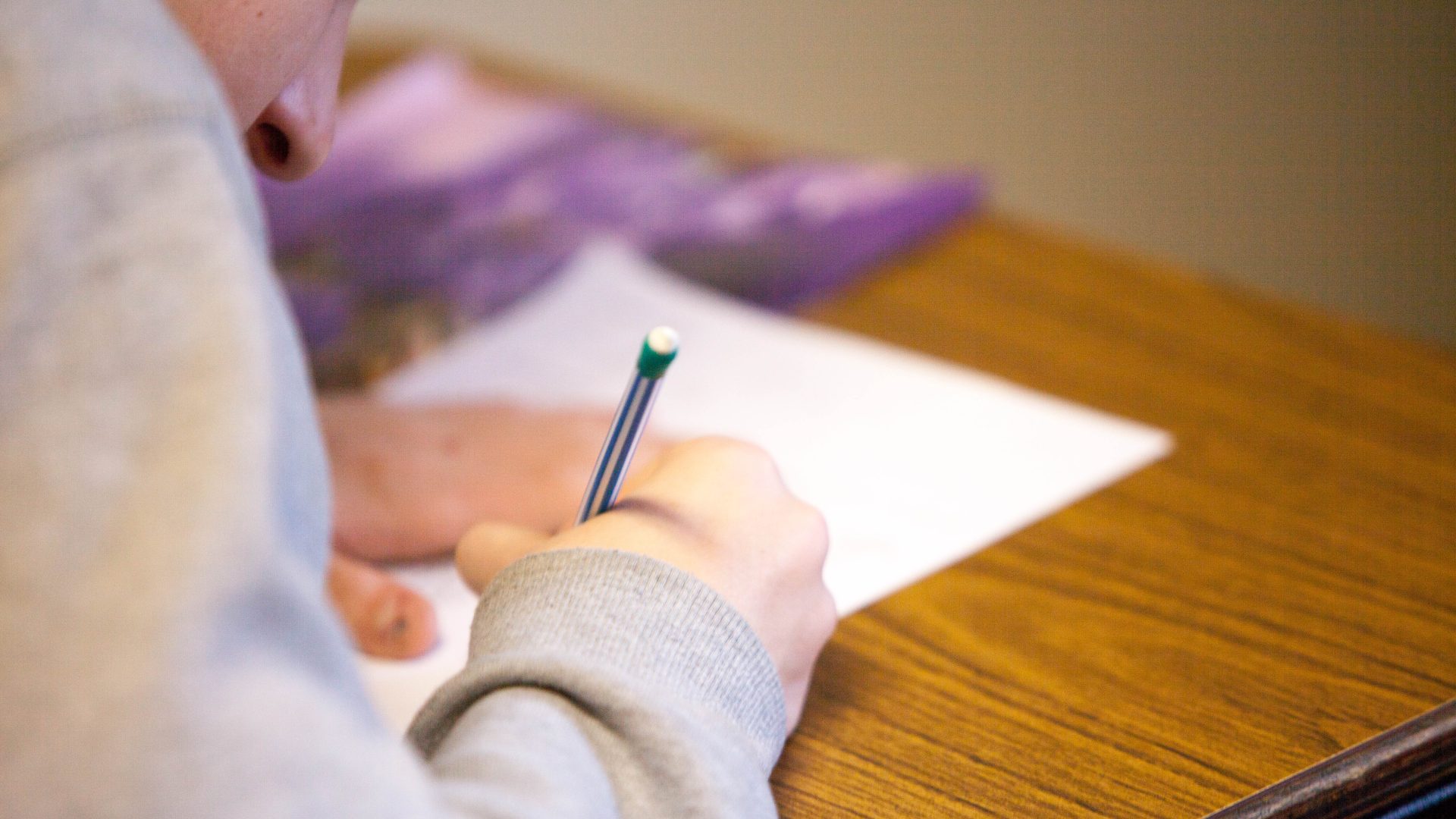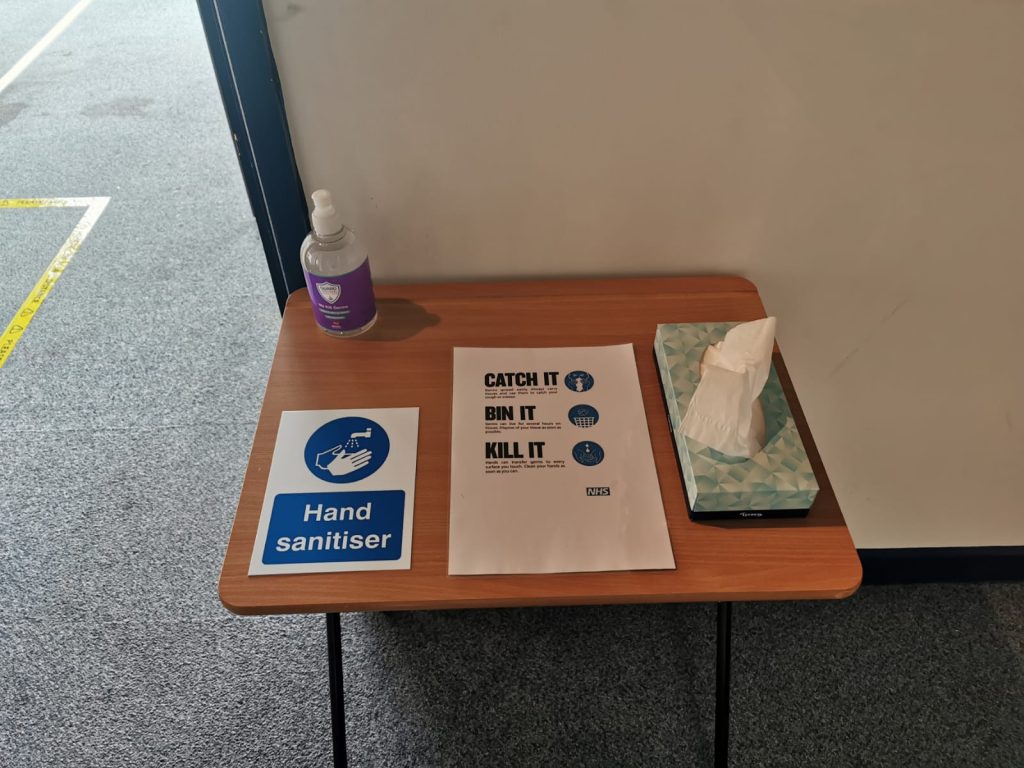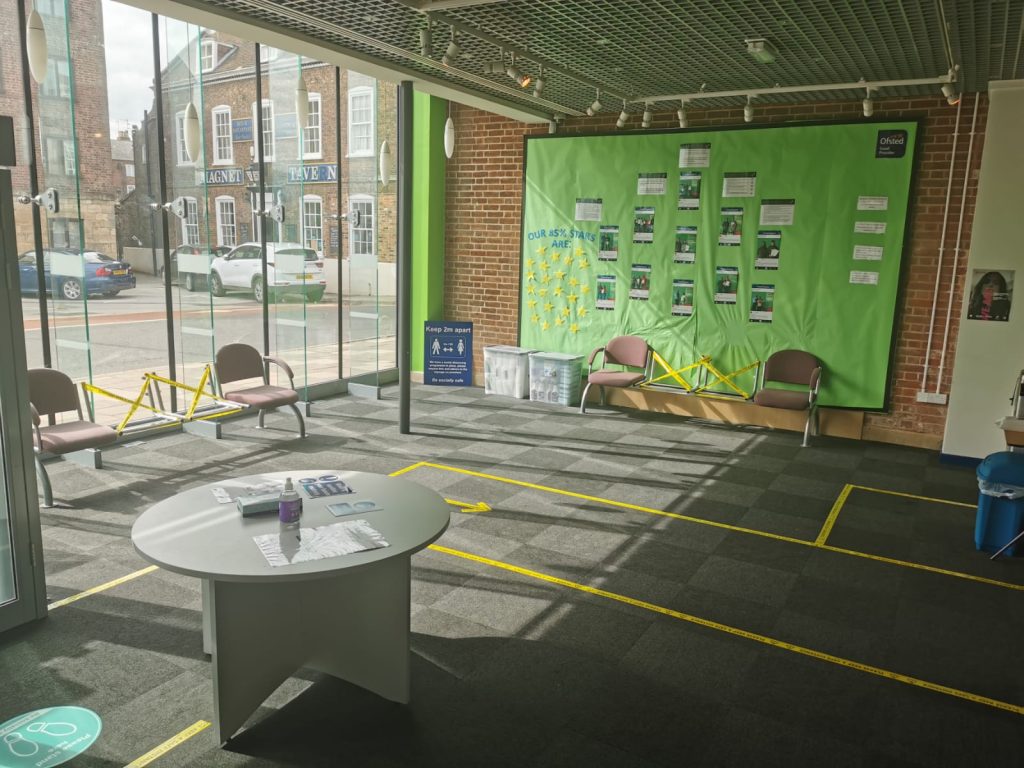
COVID-19 updates – preparing to reopen our Education & Skills Centres
Since we spoke to our education team near the beginning of lockdown, things have changed for our Education and Skills Centres who are all preparing to open 24th August and teach from September.
Awarding Qualifications
Our staff team have been working with the qualification awarding bodies to identify which qualifications will make use of centre-assessed grades, where teachers give their professional judgement for learner’s estimated grades, using evidence of past work. These results will be flowing in over the next few weeks and will inform our overall performance for the year. This has been a brand new process for staff who have all been on a steep learning curve, led by the quality team.
“The process involved looking at all our learners, ranking them in order of strength. What that allows is the exam board to standardise and look at a moderation process, those at the top will more likely get the grade, whereas those who are lower down the list with the same grade might be adjusted downwards”.
Practical Assessments
For qualifications which cannot be fully awarded in this way, like Fitness Instructing and Personal Training, and Motor Vehicle, our centres who offer these – Newcastle, Boston, Totton College – have opened their doors already to a small number of learners for practical assessments in July and early August. These assessments had been delayed throughout lockdown until risk assessments had been formulated and health and safety measures had been put in place.
“At the minute we’re only having 4 learners maximum at a time during these assessments to allow social distancing and allow our staff to get used to being back in. By September we will be fully open once more and strictly working to the Department for Education guidance”.
“On the first day, the learners that came in were really keen and delighted to be back, all the staff team were really pleased to see them. We’ve missed them”.

Getting Results
Because of the varying methods of grade awarding and huge variety of subjects, some learners will know all their results at the end of July, others will get some at the end of July and some on GCSE results day (20th August), and some learners will get them all on GCSE results day.
Once they get results they can begin planning next steps, whether that is moving onto another level at the centre, going on to college, or resitting.
“There might have to be a level of flexibility around entry requirements from ourselves and from colleges because there might be people that fell short because of the unprecedented process – perhaps they would have done well in the exam but didn’t have the correct level of academic evidence for teachers to automatically award a certain grade”.
Preparing The Centres
Preparing for September when all learners will have the chance to go back into the centres has involved each centre being visited by Nacro’s Health and Safety Manager and Chris Morgan our H&S lead: risk assessing the building, ensuring certain measures can be put in place including social distancing and signage.
Because they have been opened to some learners for assessments, Totton, Newcastle, and Boston had to consider preparation earlier, whilst the other centres are beginning this process now. Every centre has their own individual risk assessment because each setting is different, whether it’s to do with the building or courses – some have salons, workshops, construction rooms.
“At Boston, we have done a risk assessment that’s really detailed. It begins when the learners travel to the centre and arrive at the door; they used to sign in on reception with pen and paper, but instead they sign in electronically by communicating with the receptionist at a 2 metre distance. There are markings on the floor which reflect safe positions for standing. If we have visitors we need to do test and trace, getting contact details and keeping them for 20 days. We have signs on door and entrance which says if you have symptoms you can’t come in, we’re operating social distancing”.
They have put in place hand sanitising stations, one-in-one-out rules for toilet use, and tape on the floor to mark 2 metre positioning. The classrooms have 2 metre social distancing formats but in September will be looking at DfE guidance around doing 1m+, ensuring there are other measures in place including directions faced by learners and teachers and extra hygiene standards.
Learners also will have their own personal stationary, their own zip folder which can be sprayed and wiped down at the end of every day. Learners won’t bring paperwork away with them to avoid bringing potentially contaminated materials into the centres.
“It’s all about being thorough and continuing to educate the learners about the importance of all of these measures, and the staff, making sure that before anyone comes through the door they are aware of what’s in place. We have sent out a risk assessment and induction pack to staff, had conversations with them about returning, how we can help them come back to work, thinking about if they’re at risk as well or their family. Likewise for learners, we have sent them induction information pack which talks about what’s been put in place and what’s expected on their return – had to read and complete a declaration”.


Learner Engagement
Throughout lockdown, both academic and pastoral engagement have been maintained through zoom calls, phone calls, quizzes, competitions. The centres have seen high levels of engagement. This dropped slightly when learners realised that most grades were being calculated by teachers based on past work: “Our approach was to reiterate to them that it wasn’t just about the grade, but about learning and absorbing important knowledge, which you will have that when you move onto new levels or colleges”.
Towards the end of this month is usually a time where schools break up for summer and celebration events are held. As this hasn’t occurred due to the pandemic, Nacro teachers have held alternative activities, set more competitions, set work prepares learners for when they return around resilience or work relating to current events like Black Lives Matter.
Continued Challenges
A key challenge that staff continue to see is the increase in mental ill health in learners as a result of lockdown – supporting often complex problems from a distance proves difficult, as well as the higher levels of family bereavement with a substantial proportion of learners’ grandparents passing due to the virus.
The other key challenge continues to be the digital divide. Where some learners have access to everything needed, others have very limited equipment: “Some learners didn’t have Wi-Fi at home, so had to use their data which they would run out of, some share one computer between family members so don’t always have access to a device – it’s been a real eye-opener to this divide”. Staff and the business development team are looking into ways to support these learners and get funds so that learners without kit can have access, but going back to the centres in September will help close the gap significantly.
Future Approaches
Lockdown has urged our education staff to look at ways to standardise processes so all learners in centres across the country are utilising the same methods of remote working. They are now developing a new Moodle learning environment which allows teachers to set and receive work.
Making use of a blended learning approach from September will include some learners physically being in the classroom whilst others continue to learn from home, due to themselves or their family being high risk. Local lockdowns may also bring temporary closures to centres, so they will have remote ways of teaching set up just in case.
In the long-term, there is a view to implement and integrate Microsoft Teams so that lessons can be live-streamed from the classroom via Moodle: “whether at home or at the centre, you can be part of classroom learning, have the same experience”.
“We will continue to learn what’s gone well and what hasn’t, keep sharing resources and information between centres to try and standardise the process”.
Find out more about our education work here.

